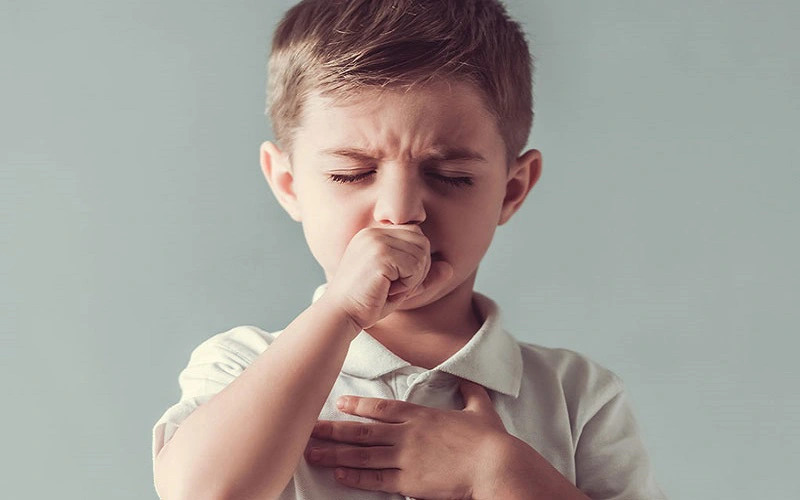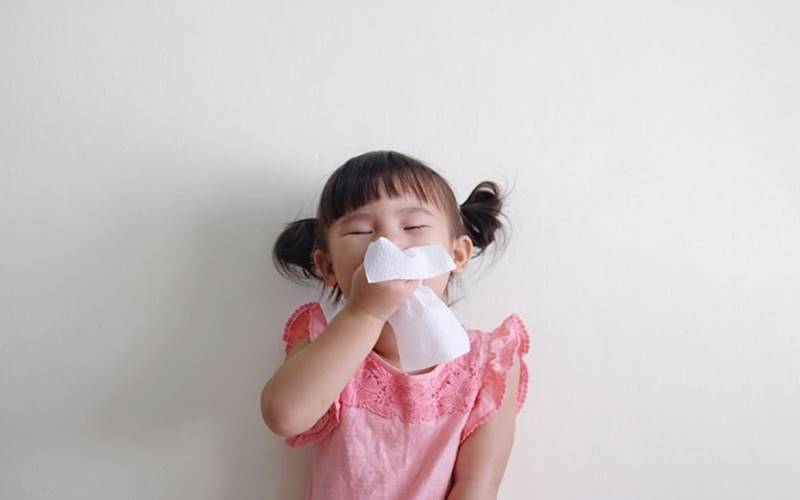A child’s dry cough can be caused by various factors such as fever or viral infections. But is it dangerous, and what should parents look out for? Read on to find out more.
1. What is a Dry Cough in Children?
 What is a dry cough in children?
What is a dry cough in children?
A dry cough in children is characterized by frequent coughing that produces little to no mucus or phlegm. It is often caused by a viral infection, such as the flu, which irritates the nerves in the throat, or it can be triggered by hormonal changes in the body.
Dry coughs are not limited to young children; they can affect people of all ages. Even newborns just a few weeks old can experience dry coughs.
2. Understanding the Causes of Dry Cough in Children
Viral Infections
 Viral Infections
Viral Infections
When a child catches a cold or the flu, it can lead to a dry cough. This type of cough can occur at the beginning, middle, or end of the illness. Even after all other cold symptoms have disappeared, the dry cough may persist for a while longer.
Post-Nasal Drip
 Post-Nasal Drip
Post-Nasal Drip
Post-nasal drip occurs when mucus accumulates in the nasal cavity and drips down the back of the throat, irritating the nerves and triggering a dry cough.
Air Pollution
External factors such as smoke, dust, and secondhand smoke can also irritate the nerves at the back of the throat, leading to a dry cough.
Respiratory Infections
 Respiratory Infections
Respiratory Infections
Dry coughs can also be a symptom of respiratory infections such as bronchitis, pneumonia, or asthma.
3. Effective Ways to Relieve Dry Cough
 Effective Ways to Relieve Dry Cough
Effective Ways to Relieve Dry Cough
Keep Your Child Hydrated
Ensure your child drinks enough water to prevent dehydration. Staying hydrated also helps soothe throat pain and itchiness.
Include Garlic in Their Diet
Garlic has antimicrobial properties and can help boost the body’s immune system to fight off viral infections. Adding garlic to your child’s meals can help improve their overall health and speed up recovery from a dry cough.
Use Cough Suppressants and Natural Oils
For children over the age of three, you can give them cough medicine to ease the symptoms of a dry cough. However, if your child is under three, avoid giving them medication and opt for natural oils instead to help manage their cough.
Maintain Moisture in the Nose and Throat
Using a steamy bathroom or a nasal and throat humidifier can provide temporary relief from coughing by adding moisture to the nose and throat.
4. When to Seek Medical Attention for Your Child’s Dry Cough
 When to Seek Medical Attention
When to Seek Medical Attention
For infants under three months old, seek medical attention if their dry cough is accompanied by other symptoms such as coughing up blood or a fever. Additionally, parents should closely monitor their child’s health and seek medical advice if they notice any unusual symptoms or changes in their child’s behavior.
This article has provided insights into dry coughs in children and addressed concerns about their potential dangers. We hope it has equipped you with the knowledge to better protect your child’s health.
Source: Hellobacsi.com
































